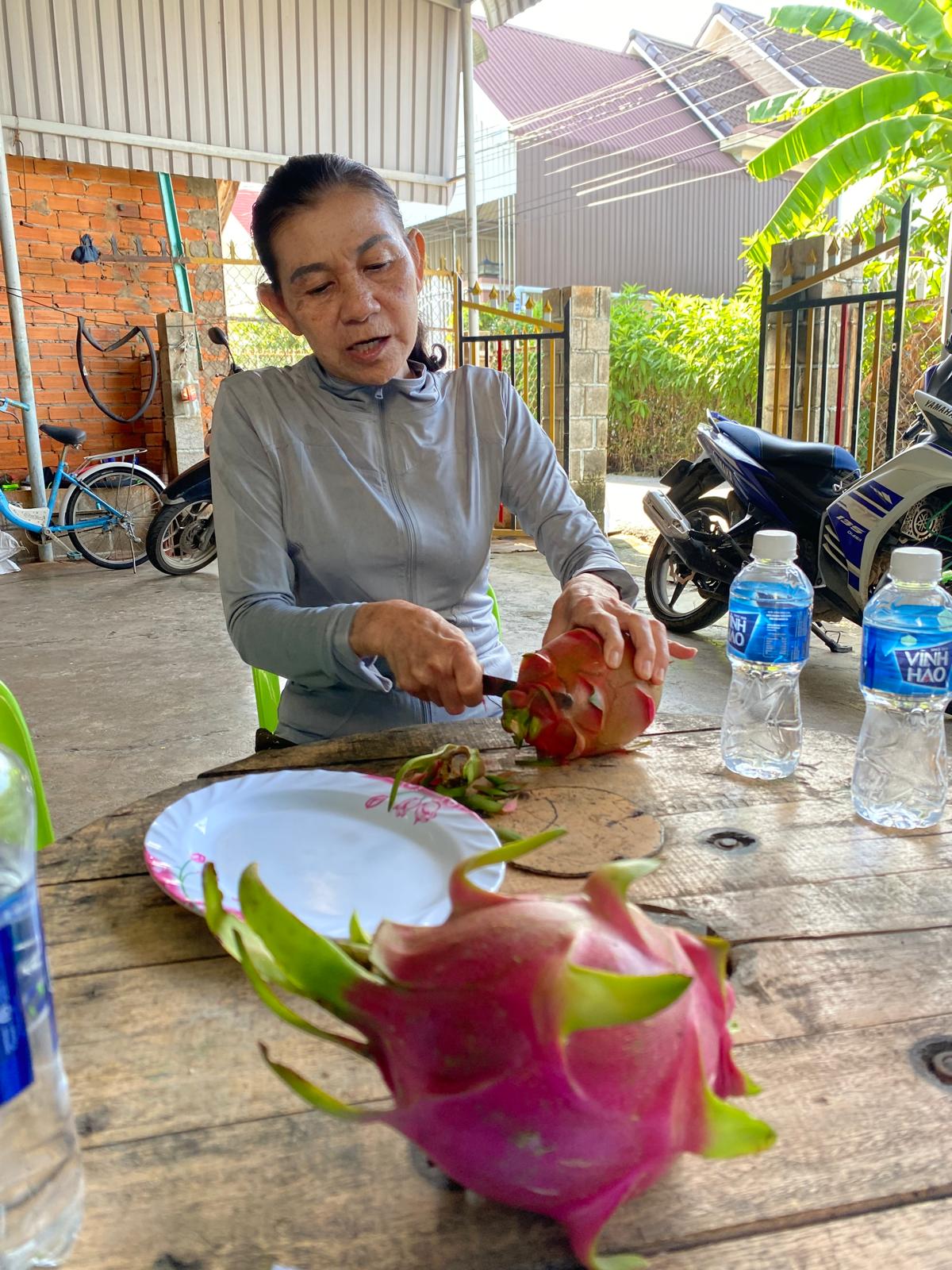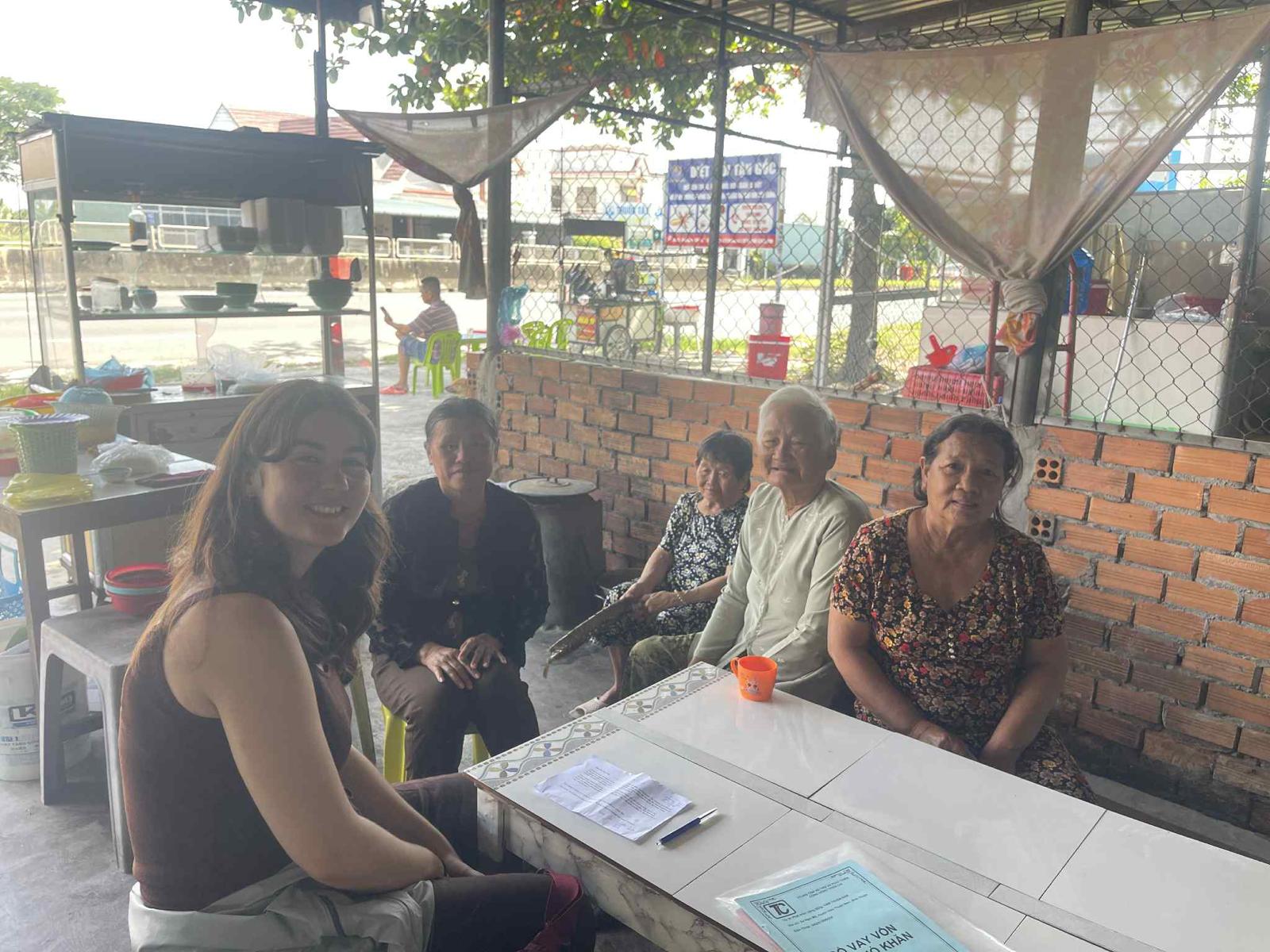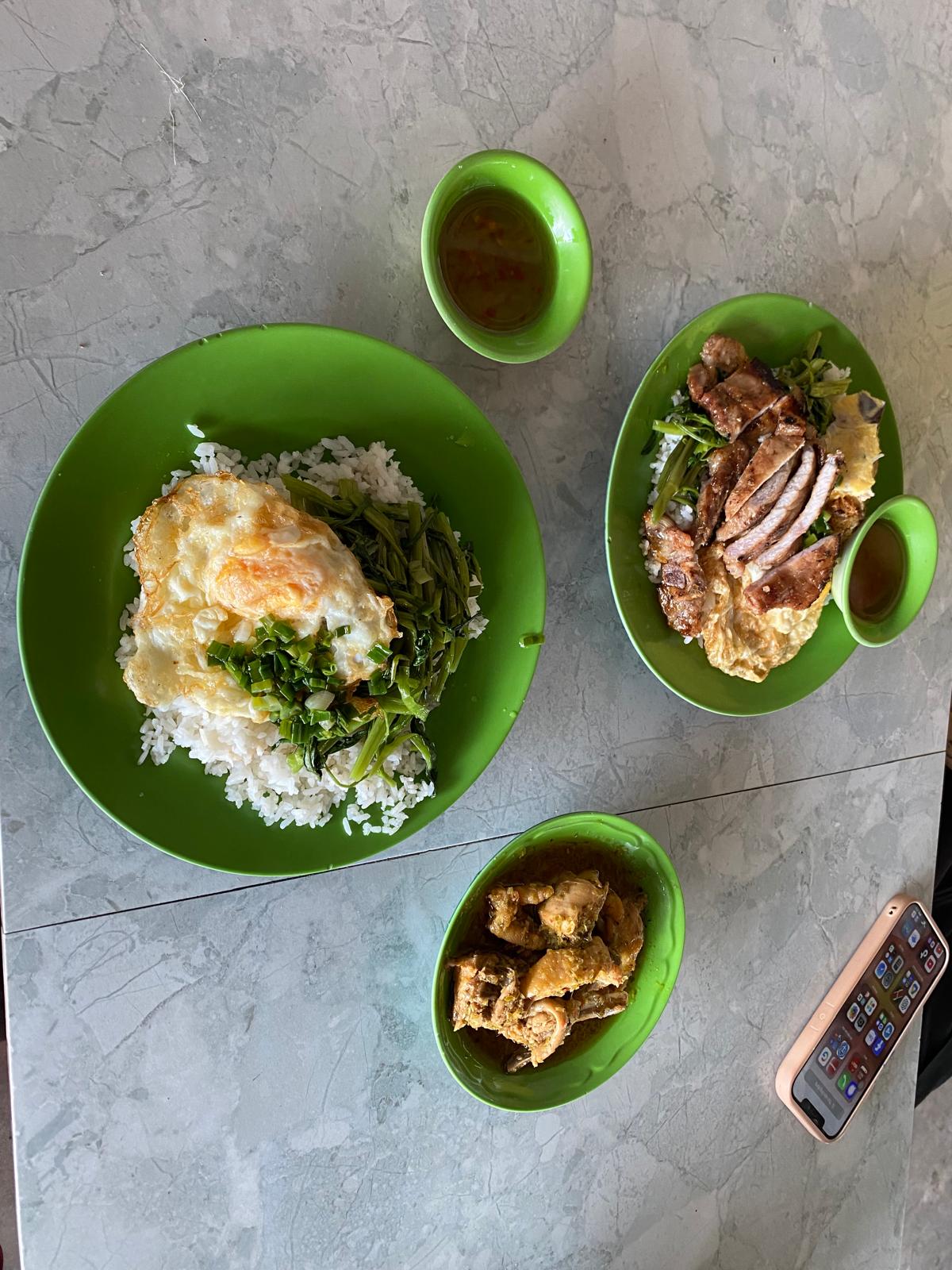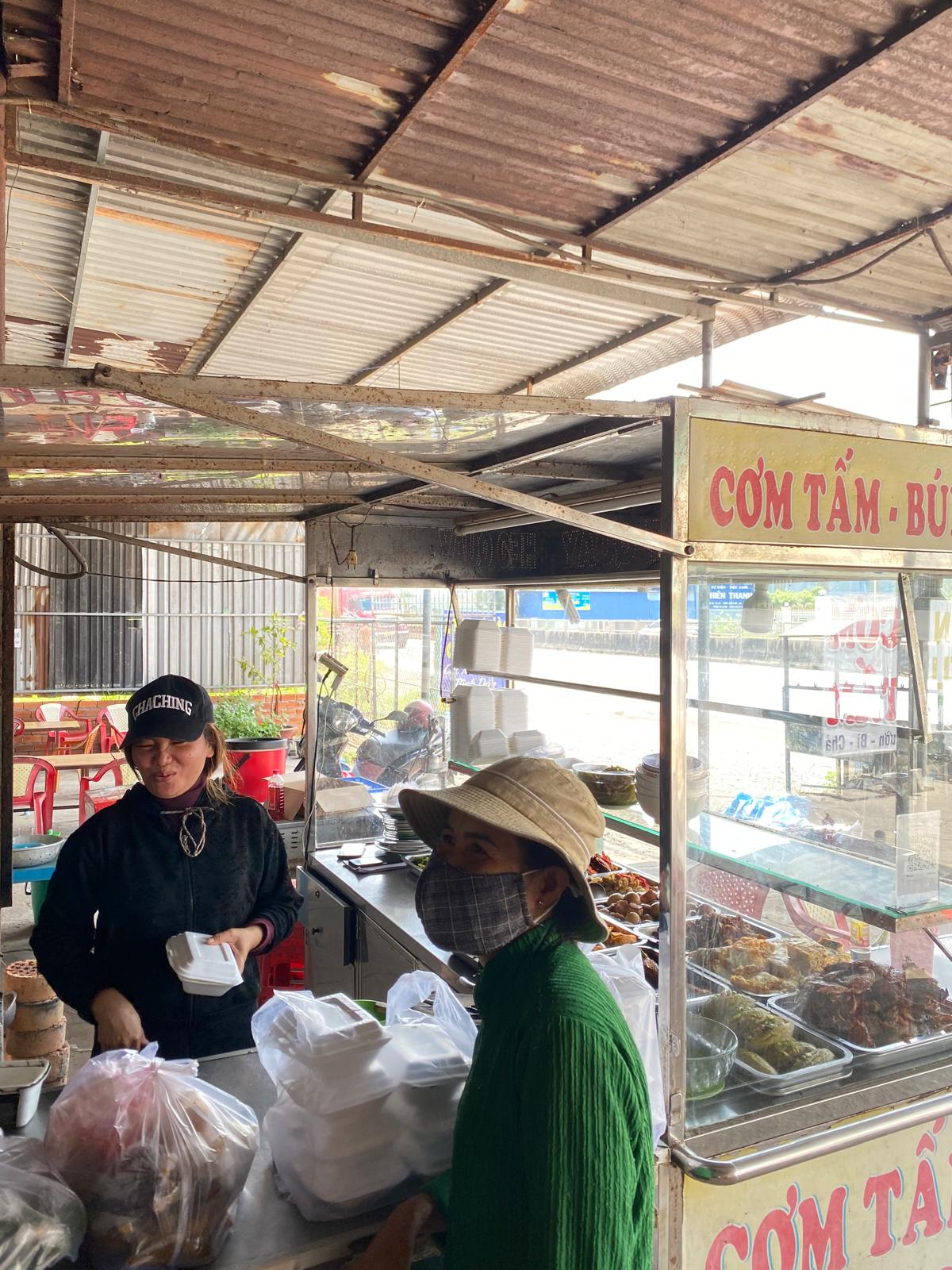This morning, I joined the Thien Chi team on another round of family visits.

The first family we visited was that of Mrs. Nhi and her husband, who have raised five children. Three of them are now married, while two remain single. Mrs. Nhi works in a dragon fruit company, usually earning between 2 and 3 USD per day, though the hours are highly unstable. In good seasons, she can work from 4 p.m. until 1 a.m., but recently, due to heavy rains that damaged the dragon fruit trees, she has had very little work. Her husband stays at home, raising chickens and ducks, repairing household appliances like kettles and fans, and even assembling bicycles from spare parts, which he sells to students for about 8 USD.
Their children work in factories in industrial zones, earning around 240 USD per month, and they contribute part of their income to support the household. Despite the difficulties, the family has been supported by Thien Chi for eight years. The NGO provided a loan to help them raise poultry, buy bicycle parts, and even pay for health insurance when Mrs. Nhi was unwell. Recently, she sold 50 chickens for a profit of 120 USD and plans to buy more after the rainy season, since raising poultry during this time is risky as they often fall sick.

The second visit was to the family of Mrs. Lieu. Her household is made up of five people: her elderly mother (84 years old and in poor health), her husband, her two nieces, and herself. Although she and her husband don’t have children, they care for the girls because their mother, Lieu’s sister, works far away in very difficult conditions. The girls are in grade 10 and grade 7. From time to time, the sister and her husband send between 40 and 80 USD to help with school and food expenses.
Lieu’s husband works as a barber, earning between 4 and 8 USD per day, while she runs a small food business, selling noodles and other items. Thien Chi has been supporting them for four years, providing a 400 USD loan to help expand their businesses. This has allowed them to cover school fees, medicine for the grandmother, and basic household needs.
Finally, we met the family of Mrs. Thach Thi Na, who belongs to an ethnic minority group. She lives with her husband and their two young children. Her daughter is in grade 1 and her son attends daycare. Her husband works as a delivery driver, earning about 350 USD per month before expenses. She raises chickens and ducks, helps her mother-in-law with small trading, and supports her own mother in running a rice restaurant. To keep costs low, she collects leftover food from customers to feed her poultry.
When the chickens are fully grown, she can sell them for about 4 USD per kilogram, with each bird weighing 2 to 3 kilograms. Unfortunately, she recently lost some ducks during the rainy season. It is not unusual for chicken and ducks to get sick more easily during rainy season and die. To increase income, she also grills chickens with her mother to sell, which helps support the children. Thien Chi provided her with a loan to buy poultry and strengthen this small business. The family now lives in a 70 m² house, built on land her mother gave them.


During the visits, I also learned a bit more about the process: each family has its own notebook, where Thien Chi staff record progress, challenges, and updates whenever they visit. This careful monitoring helps ensure the loans are used effectively and that the families feel supported, not just financially but also personally.
The families were incredibly welcoming. I was offered four dragon fruits and invited to stay for food.
Leticia